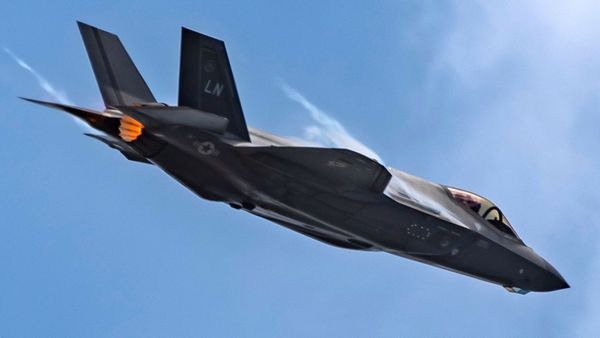
The United States Department of Health and Human Services (HHS) has announced that it is firing Susan Monarez, director of the Centers for Disease Control and Prevention (CDC), just weeks after her official confirmation to the post, and days after 600 CDC staff were sacked.
Monarez’s ousting has thrown the US’s top health agency into a leadership crisis as it has prompted an unprecedented wave of high-profile resignations from several other senior officials in protest.
On the same day as Monarez was sacked – Wednesday this week – Health Secretary Robert F Kennedy Jr, who previously headed an anti-vaccine group, also announced that COVID-19 vaccine mandates under former President Joe Biden’s administration had been rescinded.
These vaccines are now only recommended for people at higher risk of contracting the coronavirus, he said, departing from the US government’s recommendation that everyone above six months of age should receive vaccine shots in advance of flu season.
It is unclear if Monarez’s removal is directly linked to the updated COVID-19 vaccine mandates. Health experts have voiced concerns about Kennedy’s controversial approach to vaccines and immunisation in general.
Here’s what we know about the recent developments at the CDC:
Who is Susan Monarez?
Monarez is a longtime federal government scientist who was previously deputy director of the Advanced Research Projects Agency for Health (ARPA-H). She received her doctorate from the University of Wisconsin-Madison, and her research work has focused on infectious diseases and technological innovations in healthcare.
Monarez became the CDC’s acting director in January after Biden’s departure from the White House. In March, Trump nominated her as his official appointee. He had withdrawn his initial nomination of physician Dave Weldon, who came under fire for his controversial comments linking autism to vaccine use, a theory which has been debunked.
In July, the Senate confirmed Monarez as CDC head. She was the first CDC director not to hold a medical degree since 1953. She oversaw the tense period following an August 8 attack on CDC premises in Atlanta by a gunman, when staff reported a rise in targeted harassment.
According to reporting by The Washington Post, Kennedy and other officials pressed Monarez in recent days to support the revocation of certain approvals for coronavirus vaccines.
Monarez reportedly refused to take such action without consulting other officials. She also reportedly called Bill Cassidy, a physician and head of the Senate Committee on Health, Education, Labor, and Pensions, into the matter, which angered Kennedy, the Post reported.
During Kennedy Senate confirmation hearing, Cassidy, a Republican, had pressed and received assurances that the health secretary would commit to protecting vaccines before voting for him.

What have the Health Department and the White House said?
The Department of Health and Human Services announced Monarez’s departure in a post on X on Wednesday, which stated that she was no longer the director and that the department “thanked her for her dedicated service to the American people”.
The statement went on to say that Kennedy “has full confidence in his team [at the CDC] who will continue to be vigilant in protecting Americans against infectious diseases at home and abroad”.
Later in the day, following a defiant statement from Monarez’s lawyers, the White House also issued a statement confirming the move and accusing Monarez of refusing to resign despite informing top officials she would do so.
“Susan Monarez is not aligned with the President’s agenda of Making America Healthy Again,” spokesperson Kush Desai said in a statement.
“Since Susan Monarez refused to resign despite informing HHS leadership of her intent to do so, the White House has terminated Monarez from her position with the CDC.”
How has Monarez responded?
On Wednesday, Monarez’s lawyers initially said she would not resign as she could not be fired by the HHS. As she was a Senate-confirmed official, only President Donald Trump could fire her, they argued.
In an initial statement on X following the HHS’s announcement of Monarez’s departure, lawyers Mark Zaid and Abbe Lowell accused Kennedy of targeting health experts at the CDC, including Monarez, and said that since she has not received a notice from the White House, she “has neither resigned nor yet been fired”.
This prompted the White House to confirm the measure later in the day.
“Secretary Kennedy and the HHS have set their sights on weaponizing public health for political gain and putting millions of American lives at risk,” the lawyers’ statement read.
Monarez had been targeted because she “refused to rubber-stamp unscientific, reckless directives, and fire dedicated health experts”, it added.
After the White House issued the statement confirming Monarez had been fired, her lawyers again fought back on X and said they had informed the White House that Monarez would not resign.
“As a presidential appointee, Senate-confirmed officer, only the president himself can fire her,” the lawyers said.
Who else has quit the CDC after Monarez’s firing?
At least three senior officials have confirmed their resignations, while one more is believed to be resigning:
- Dr Debra Houry, the CDC’s chief medical officer and deputy director for program and science, who was next in line as director
- Dr Dan Jernigan, director of the National Center for Emerging and Zoonotic Infectious Diseases
- Dr Demetre Daskalakis, director of the National Center for Immunization and Respiratory Diseases
- Dr Jennifer Layden, director of the Office of Public Health Data, Surveillance and Technology, is also reported to be exiting the CDC, but has not publicly confirmed this yet.
In a resignation email Houry sent to CDC staff and which was seen by local media, she did not directly state her reasons for resigning, but denounced the mixing of health and politics, heightened misinformation around vaccines and budget cuts.
“For the good of the nation and the world, the science at CDC should never be censored or subject to political pauses and interpretations … Vaccines save lives – this is an indisputable, well-established, scientific fact,” she wrote.
In a statement on X, Daskalakis said he was resigning because of the HHS’s May decision to exclude children and pregnant women from COVID-19 vaccine recommendations, and because of Kennedy’s overall leadership. He accused the health secretary of treating the CDC as a place to generate unscientific policies and information that was “designed to hurt rather than help” the American public.
“I find that the views he and his staff have shared challenge my ability to continue in my current role at the agency and in the service of the health of the American people. Enough is enough,” Daskalakis wrote.
“I have never experienced such radical non-transparency, nor have I seen such unskilled manipulation of data to achieve a political end rather than the good of the American people,” he added.
My resignation letter from CDC.
Dear Dr. Houry,
I am writing to formally resign from my position as Director of the National Center for Immunization and Respiratory Diseases at the Centers for Disease Control and Prevention (CDC), effective August 28, 2025, close of business.…
— DrDemetre (@dr_demetre) August 27, 2025
How have other public health experts reacted?
Several health experts have condemned Kennedy and his recent moves at the CDC.
Physician Ashish Jha, who served as the White House COVID-19 director from 2022 to 2023 under Biden, said Kennedy’s leadership had led to a “total implosion” at the agency.
“There is a wholesale destruction of leadership at the CDC,” he wrote in an X post on Wednesday.
Similarly, Brown University professor Craig Spencer said the massive resignations were a “massive alarm” about the state of the CDC and health leadership in the US.
“What’s happening at the CDC should frighten every American,” Spencer wrote on X. “This is pure chaos that leaves the country unprepared. Imagine cases of Ebola in the US right now? We would be an absolute mess,” the physician, who is himself a survivor of the Ebola virus, added.
Meanwhile, Cassidy, the Republican senator, in a statement on X, said the high-profile departures from the CDC would “require oversight from HELP”, referring to the Senate Committee on Health, Education, Labor and Pensions.
What is driving tension at the CDC?
Kennedy has long been known for his vaccine scepticism and controversial statements, which experts say have no scientific backing. He was chair of the Children’s Health Defense, an anti-vaccine group, until 2023.
He also previously criticised the CDC in particular for aligning with vaccine manufacturers and Big Pharma. In the past, he has made comments linking the CDC’s childhood vaccine programmes, which recommend a host of vaccinations for infants, to increasing cases of autism in children – a theory for which there is no evidence.
Kennedy, a former Democrat, initially campaigned for the presidency but abandoned his ambitions to support Trump instead. Before that, and during Trump’s first administration, however, Kennedy criticised him as a “bully”.
Before he was confirmed as health secretary, Kennedy denied several of the controversial statements he had made about vaccines in the past. At the same time, he promised vaccine sceptics, who make up a significant part of the Trump supporter base, that he would end COVID-19 vaccine mandates put in place under Biden. On Wednesday, Kennedy made good on that promise.
Then, last week, a court confirmed that the CDC would sack 600 staff, part of Kennedy’s push to cut staff numbers by 20 percent or 20,000 people.
Earlier in August, he cut funding for mRNA vaccine development. Experts called that move a “dangerous” one, which would make the US vulnerable to future outbreaks of respiratory viruses like COVID-19.
In July, he fired all 17 members of a scientific advisory panel on vaccines at the CDC.
What are Trump’s views on vaccines?
While Kennedy’s views on vaccines have been consistent, Trump has flip-flopped on the issue. The president has also made a controversial statement linking vaccines for children to increasing cases of autism.
However, he has also encouraged his supporters at times to take vaccines. During the COVID-19 pandemic, Trump’s first administration pressed manufacturers to produce vaccines at lightning speed, something the president bragged about subsequently.
Trump and Kennedy appear to align on the rescinding of COVID-19 vaccine mandates. The White House has halted federal funding for schools that require students to be vaccinated against COVID-19 and, more broadly, has cut funding to institutions such as USAID and Gavi, the global vaccine alliance that helps obtain vaccines for poorer countries.







